37+ Sample Thesis Statements
-
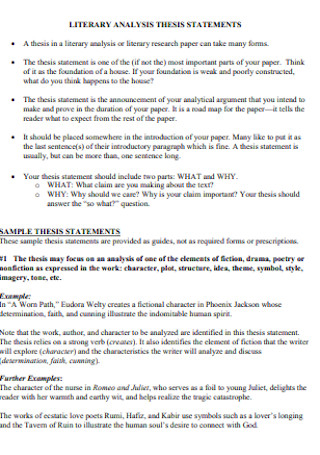
Literary Analysis Thesis Statement
download now -
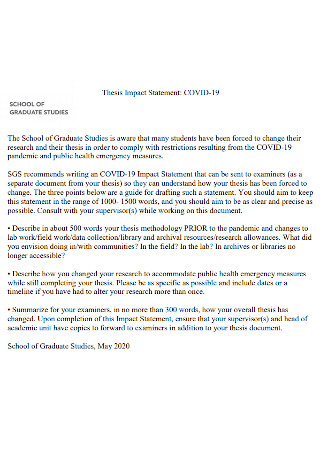
Thesis Impact Statement
download now -
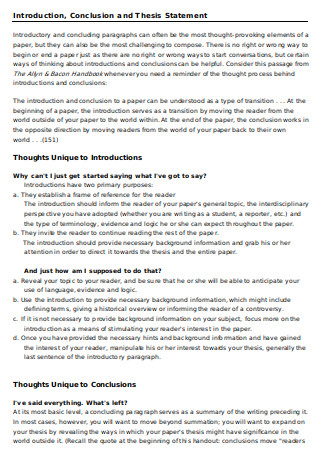
Introductory Thesis Statement
download now -
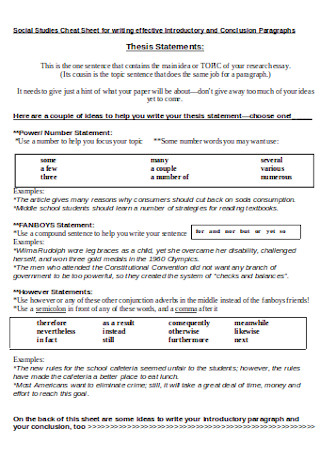
Thesis Statement Format
download now -
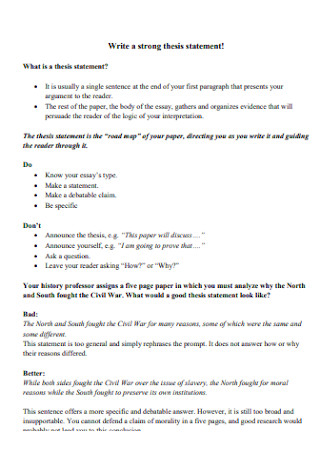
Strong thesis Statement
download now -
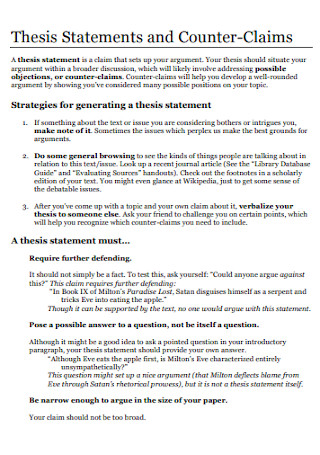
Thesis Statements and Counter-Claims
download now -
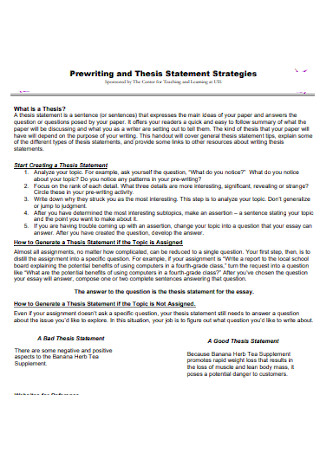
Prewriting and Thesis Statement
download now -
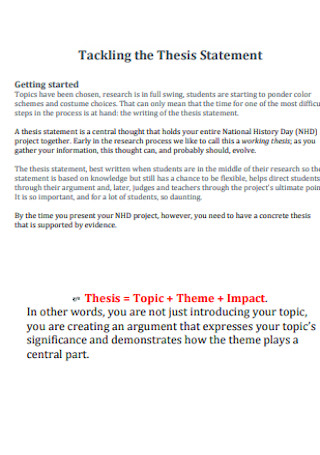
Tackling the Thesis Statement
download now -
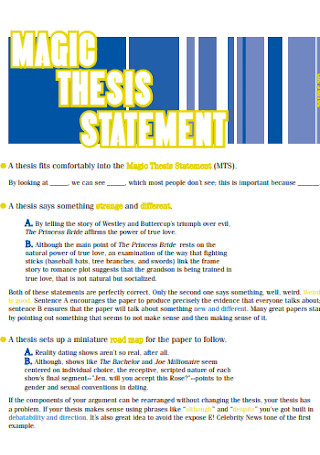
Magic Thesis Statement
download now -
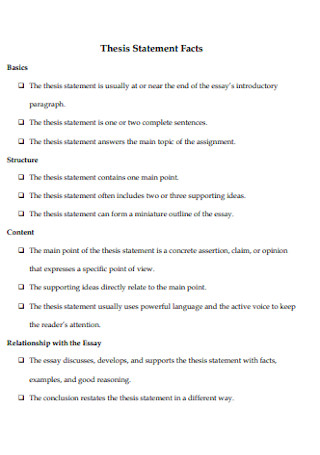
Thesis Statement Facts Template
download now -
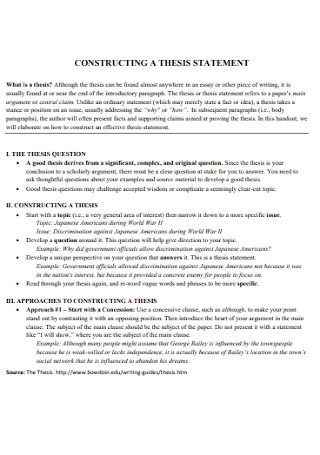
Constructing Thesis Statement
download now -
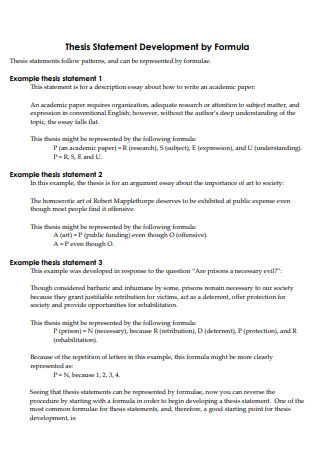
Thesis Statement Development by Formula
download now -
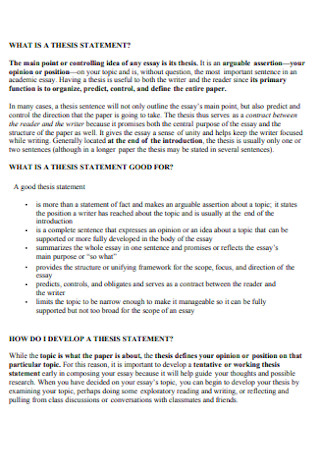
Sample Thesis Statement Template
download now -
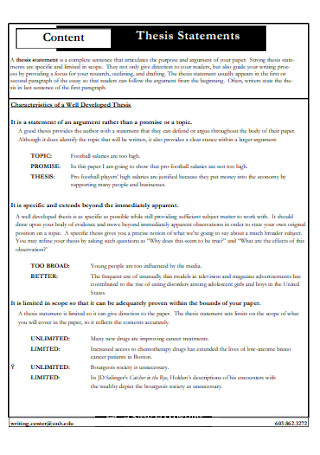
Thesis Statements Content Example
download now -
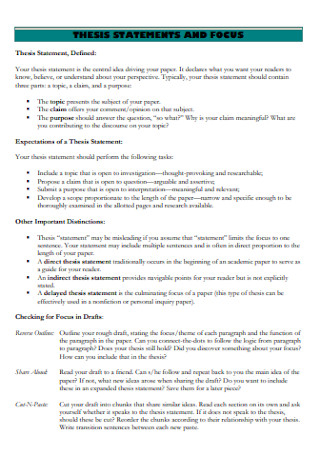
Thesis Staqtement and Focus
download now -
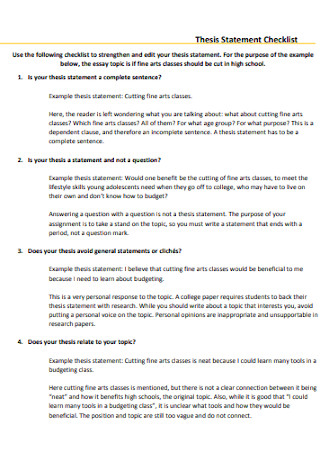
Thesis Statement Checklist
download now -
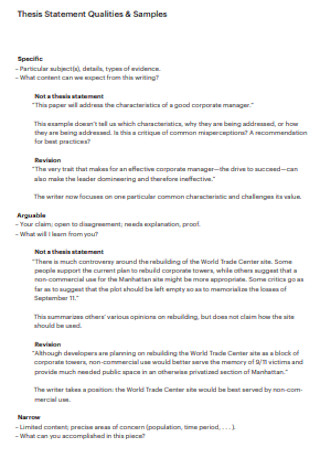
Thesis Statement Qualities
download now -
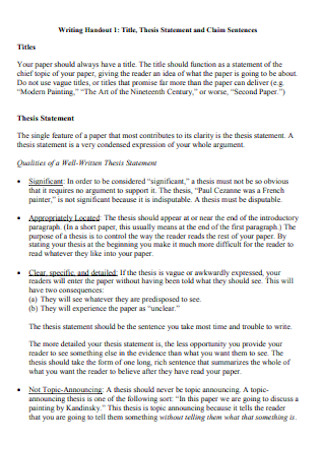
Thesis Statement and Claim Sentences
download now -
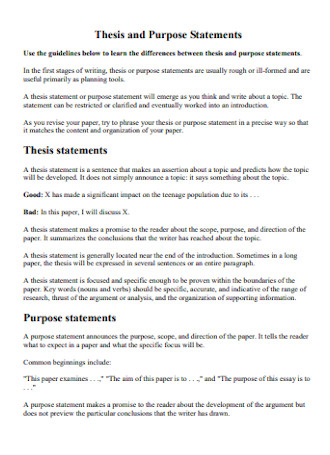
Thesis and Purpose Statements
download now -
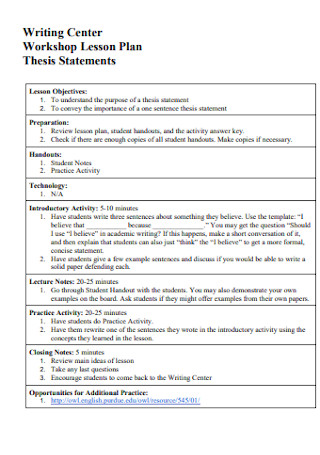
Thesis Statements Lesson Plan
download now -
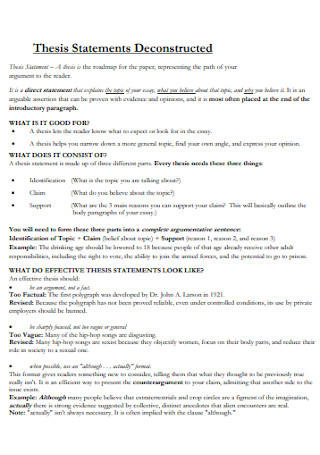
Thesis Statements Deconstructed
download now -
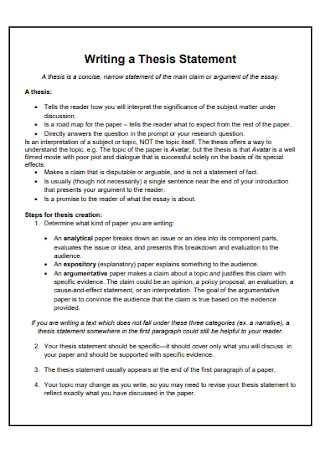
Writing a Thesis Statement
download now -
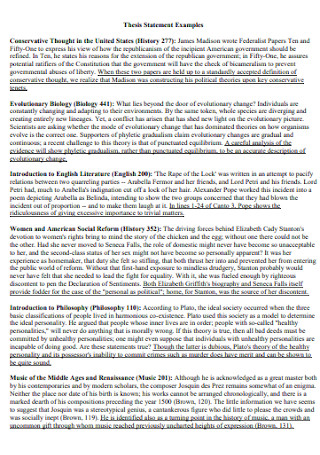
Thesis Statement Examples
download now -
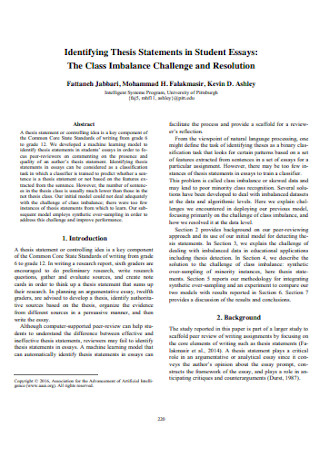
Thesis Statements in Student Essays
download now -
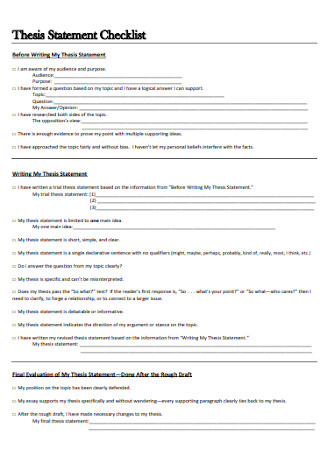
Sample Thesis Statement Checklist
download now -
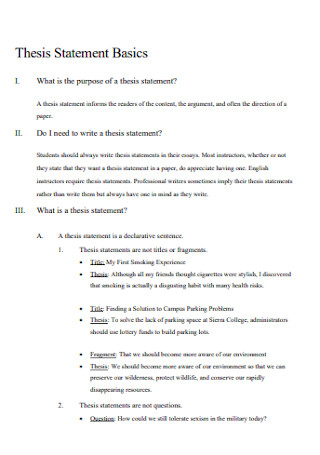
Basic Thesis Statement Template
download now -
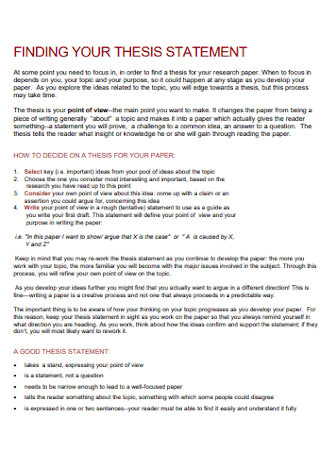
Finding Your Thesis Statement
download now -
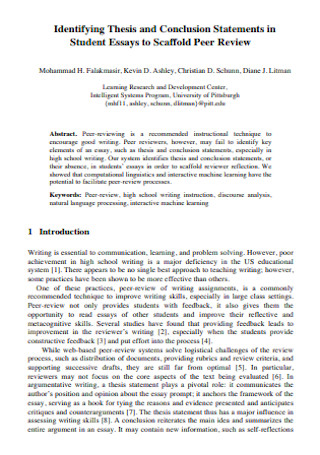
Thesis and Conclusion Statement
download now -
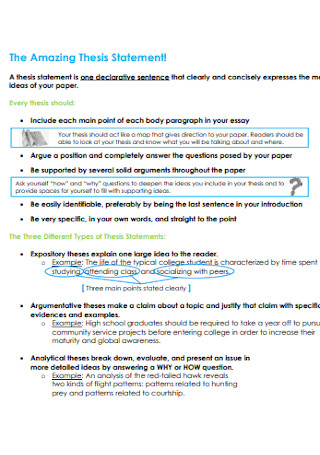
Amazing Thesis Statement
download now -
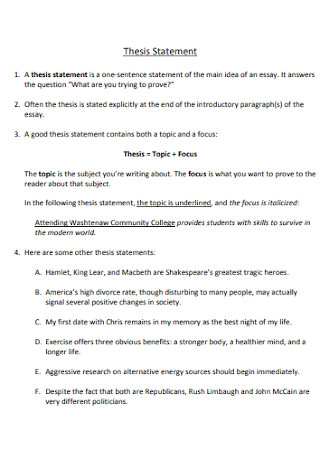
College Thesis Statement
download now -
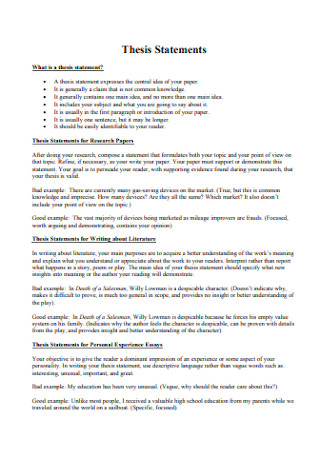
Thesis Statements Format
download now -
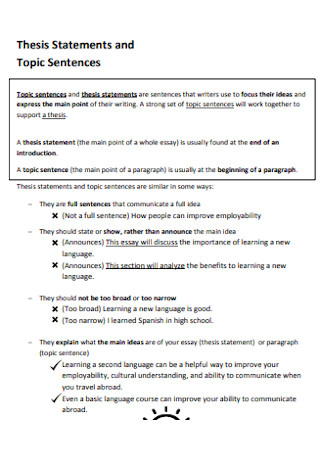
Thesis Statements and Topic Sentence
download now -
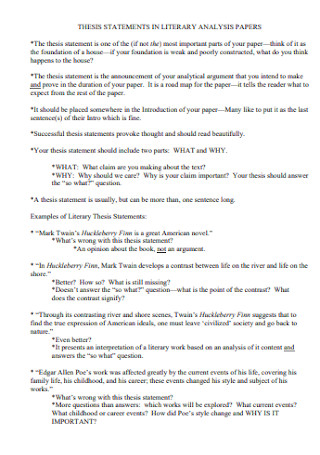
Thesis Statement for Literary Papers
download now -
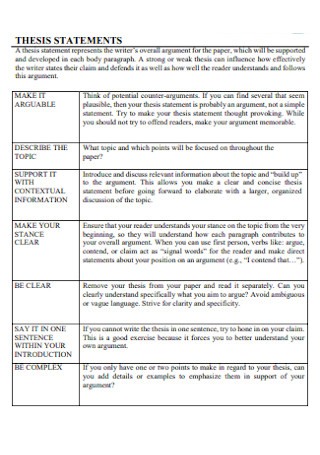
Studio Thesis Statement
download now -
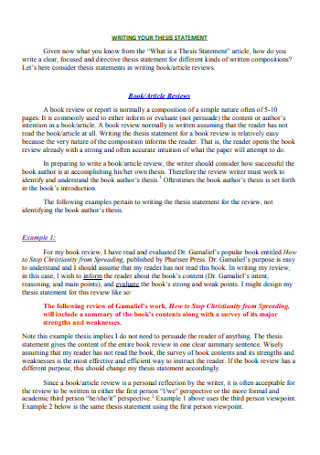
Simple Thesis Statement
download now -
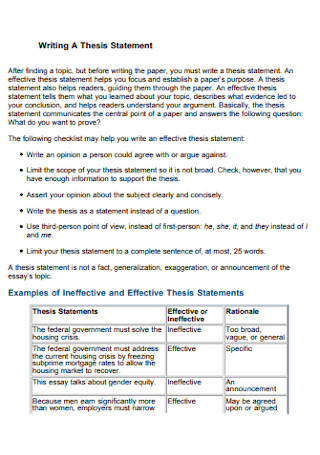
Student Thesis Statement
download now -
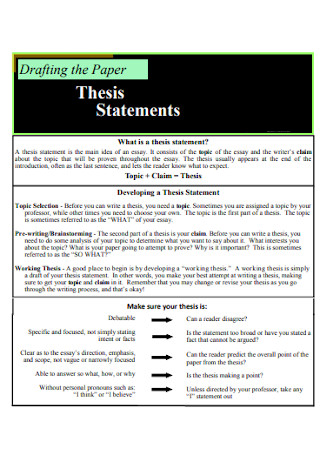
Formal Thesis Statements
download now
What Is a Thesis Statement?
A thesis statement is an integral part of a thesis or a dissertation. It identifies the topic of discussion, the points of discussion of the paper, and a target audience specified. The goal of the thesis statement is to pique the interest of the readers, giving them a brief background on the topic of the paper. The sentence or sentences tells the reader how to interpret the researcher’s point of view or interpretation on the subject of discussion. It indicates the direction of the essay or the study through a detailed roadmap according to the main points stated. The thesis statement includes a claim that is open for discussion. The discussion enables a debatable subject and is the key to imploring further research. The thesis statement also defines the type of essay or study the researchers are interested in conducting.
According to an article entitled “Are you gonna publish that?” Peer-reviewed publication outcomes of doctoral dissertations in psychology published in 2018, the overall weighted average of published dissertations relating to psychology in journals rated 25.6 percent within 0-7 years after completion. Only a quarter of dissertations undergoes publication with factors relating to the topics and subtopics of the essay.
The Four Elements of a Thesis Statement
There are different classifications of research made by various authors, resulting in different types of thesis statements. The form of a thesis statement depends on the nature of the author’s work and is modified accordingly. Here are the four elements found in any thesis statement in an essay or dissertation.
How to Write a Thesis Statement
In writing essays or dissertations, one of the most challenging things an author encounters, while writing a thesis is creating an effective thesis statement. The thesis statement is essential in knowing the direction of the entire paper. Presented below are the steps in creating an effective thesis statement.
Step 1: Start With a Question about the Topic
Regardless of the complication related to the subject, a thesis statement starts with answering a simple question. The main idea is created by answering the question associated with the assigned topic and is utilized in the thesis statement.
Step 2: Tailor the Statement According to the Paper
Thesis statements vary according to the essay or dissertation of the author. Argumentative, expository, and analytical essays have different thesis statement constructions. Argumentative papers focus on making claims and supporting opinions to change a person’s point of view. Expository essays explain or interpret various points. On the other hand, the creation of analytical papers breaks down information to understand and examine it better. The thesis statement caters to the content of the dissertation, depending on the way of writing.
Step 3: Pick a Specific Side to Make the Thesis Impactful
It is relevant to address an issue relating to the main idea and provide great detail that supports the claim. It is essential to highlight an argument that the paper focuses on to entice the reader in agreement with the opinion the author raises. Support the claim using various ways like opinions and factual information.
Step 4: Create a Unique Argument
An original argument helps build rapport with the reader by using a fresh and dynamic approach. It brings a new and exciting way to phrase the thesis statement, captivating the audience to read on through the argument presented by the author.
Step 5: Ensure the Thesis Is Provable
The critical part of creating a thesis statement is the ability to provide supporting details for the dissertation. Further research is essential after the creation of the thesis statement from the question and the supporting arguments. The essay cannot develop with the lack of substantial evidence to support the claim of the author. It is necessary to make sure there is a sufficient amount of sources available to finalize the thesis.
Tips on Writing an Effective Thesis Statement
Knowledge of the content and the proper way of writing a thesis statement is necessary to convey the summary of the main idea. With the thesis statement being only one to two sentences long, the thesis statement must inform the audience of the content of the thesis. Here are a few tips to keep in mind to write an effective thesis statement.
Three Types of Thesis Statements
A thesis statement is composed depending on the type of essay or dissertation the author is writing. Each category has a distinctive feature that sets it apart from the others. The author takes these into account to ensure it matches the tone of the paper. Below are the three types of thesis statements used by people conducting research papers.
FAQs
What is the difference between a research question and a thesis statement?
A research question indicates the course of the research paper. It is an open-ended question, not an ultimate claim or conclusion. A research question acts as the focus of the study and aids the author’s decision about the methodology used in creating the paper. It guides the author through the process of inquiry, investigation, and reporting. Meanwhile, a thesis statement is a brief and concise sentence or sentence summarizing the main point of an essay or dissertation. The author creates specific claims and opinions regarding the topic that elicits debate and objections from the readers. The author’s main idea undergoes development through supporting records and further explanation in the body of the paper. The documents used by the author must come from reliable and factual sources.
What is the importance of a thesis statement to any essay, study, or dissertation?
A thesis statement is an imperative portion of a strong thesis or essay. The sentence or sentences holding the thesis statement directs and unifies the direction the piece of writing takes. One of the reasons why a thesis statement is important is it creates focus on the main idea of the thesis. The writer must be concise in writing the thesis statement while also capturing the essence of the main idea. It guides not only the reader but the writer as well. It serves as a roadmap to keeping the ideas and information of the paper in a structured and organized manner. Another reason of significance relates to giving readers a better understanding of the main idea presented by the author. It sets the reader up for the flow of the thesis itself. The thesis statement eases the readers into the main parts of the paper that provides the supporting literature and data of the thesis. It gives the readers a brief background on the contents of the thesis.
Which part of the research paper is a thesis statement included?
A thesis statement is present at the end of the introductory paragraph. The sentences before the thesis statement serve as an introduction, and the sentences after support and explain it. While a topic sentence introduces and establishes the flow of a paragraph, the thesis statement serves a similar function in helping the readers understand the framework of the paper. The reason is the thesis statement produces a cause and effect pattern to show a comparison of arguments.
Growing older doesn’t mean that we need to stop learning. Each day, the discovery of new challenges and experiences enables people to acquire knowledge. Gaining a sense of awareness requires cognitive processes, proper communication, perception, and logical thinking. Knowledge is a form of progress as it enables persons to succeed in life and keep up with the ever-changing environment. The essence of learning is that we use it effectively to our advantage to attain success. Writing a thesis works the same way. Authors start a study to share knowledge in a structured and systematic way. A thesis statement shows the readers how an idea blooms into a dissertation, complete with facts. In the words of the German philosopher Immanuel Kant, “All our knowledge begins with the senses, proceeds then to the understanding, and ends with reason. There is nothing higher than reason.” Learn how to create an effective thesis statement and start to discover valuable knowledge from the samples above.
